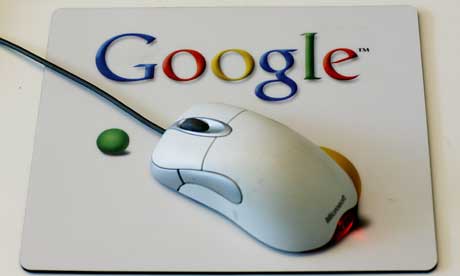- The Observer, Sunday 25 January 2009
- Article history

Google. Photograph: Guardian
Google is to launch a service that would enable users to access their personal computer from any internet connection, according to industry reports. But campaigners warn that it would give the online behemoth unprecedented control over individuals' personal data.
The Google Drive, or "GDrive", could kill off the desktop computer, which relies on a powerful hard drive. Instead a user's personal files and operating system could be stored on Google's own servers and accessed via the internet.
The long-rumoured GDrive is expected to be launched this year, according to the technology news website TG Daily, which described it as "the most anticipated Google product so far". It is seen as a paradigm shift away from Microsoft's Windows operating system, which runs inside most of the world's computers, in favour of "cloud computing", where the processing and storage is done thousands of miles away in remote data centres.
Home and business users are increasingly turning to web-based services, usually free, ranging from email (such as Hotmail and Gmail) and digital photo storage (such as Flickr and Picasa) to more applications for documents and spreadsheets (such as Google Apps). The loss of a laptop or crash of a hard drive does not jeopardise the data because it is regularly saved in "the cloud" and can be accessed via the web from any machine.
The GDrive would follow this logic to its conclusion by shifting the contents of a user's hard drive to the Google servers. The PC would be a simpler, cheaper device acting as a portal to the web, perhaps via an adaptation of Google's operating system for mobile phones, Android. Users would think of their computer as software rather than hardware.
It is this prospect that alarms critics of Google's ambitions. Peter Brown, executive director of the Free Software Foundation, a charity defending computer users' liberties, did not dispute the convenience offered, but said: "It's a little bit like saying, 'we're in a dictatorship, the trains are running on time.' But does it matter to you that someone can see everything on your computer? Does it matter that Google can be subpoenaed at any time to hand over all your data to the American government?"
Google refused to confirm the GDrive, but acknowledged the growing demand for cloud computing. Dave Armstrong, head of product and marketing for Google Enterprise, said: "There's a clear direction ... away from people thinking, 'This is my PC, this is my hard drive,' to 'This is how I interact with information, this is how I interact with the web.'"















